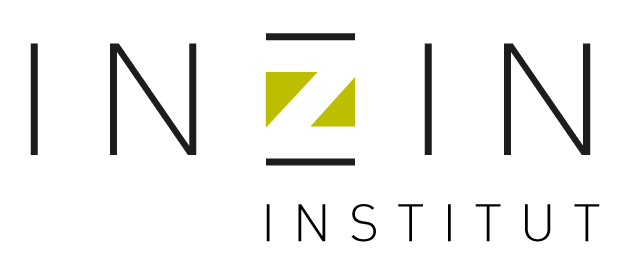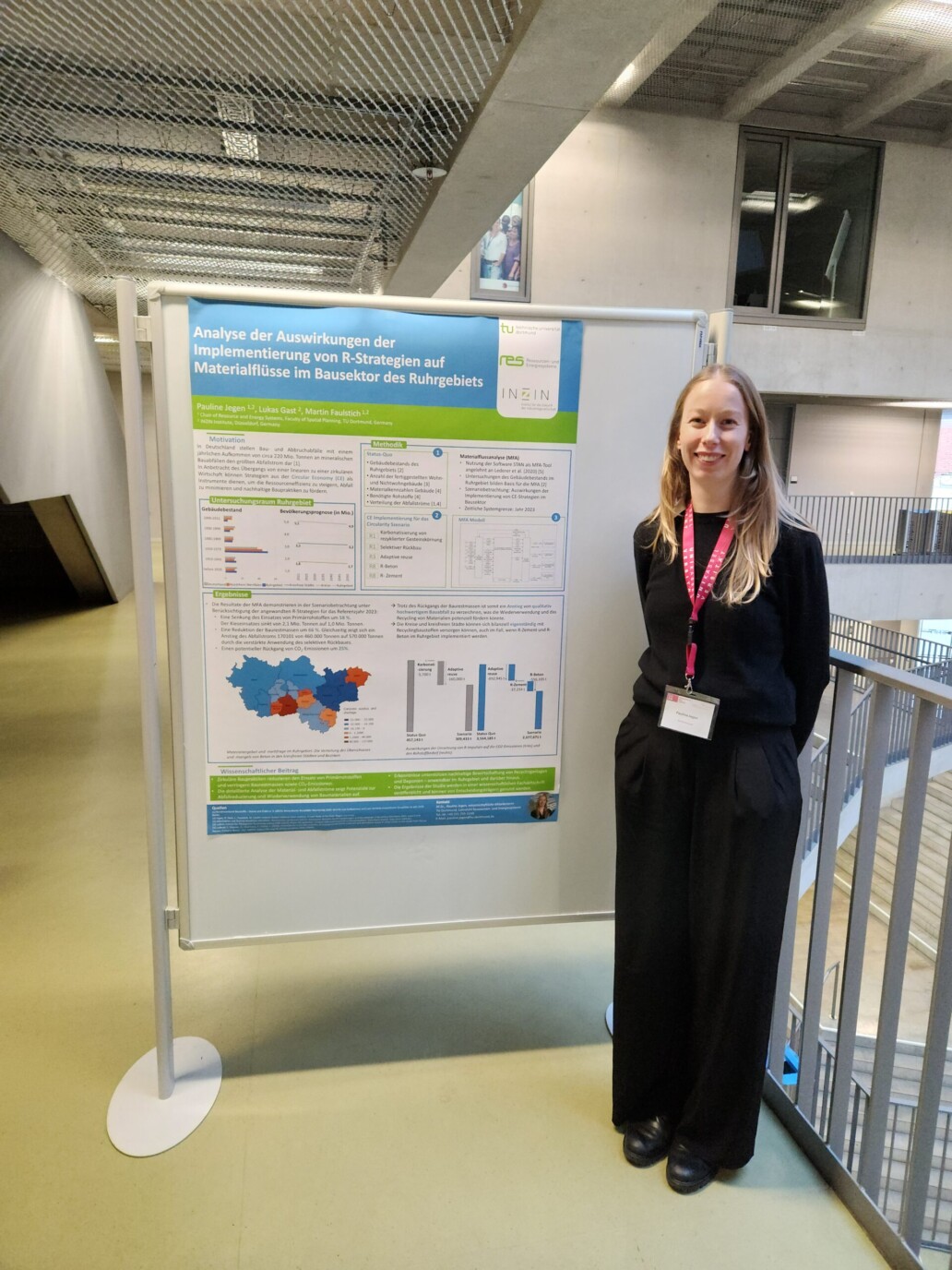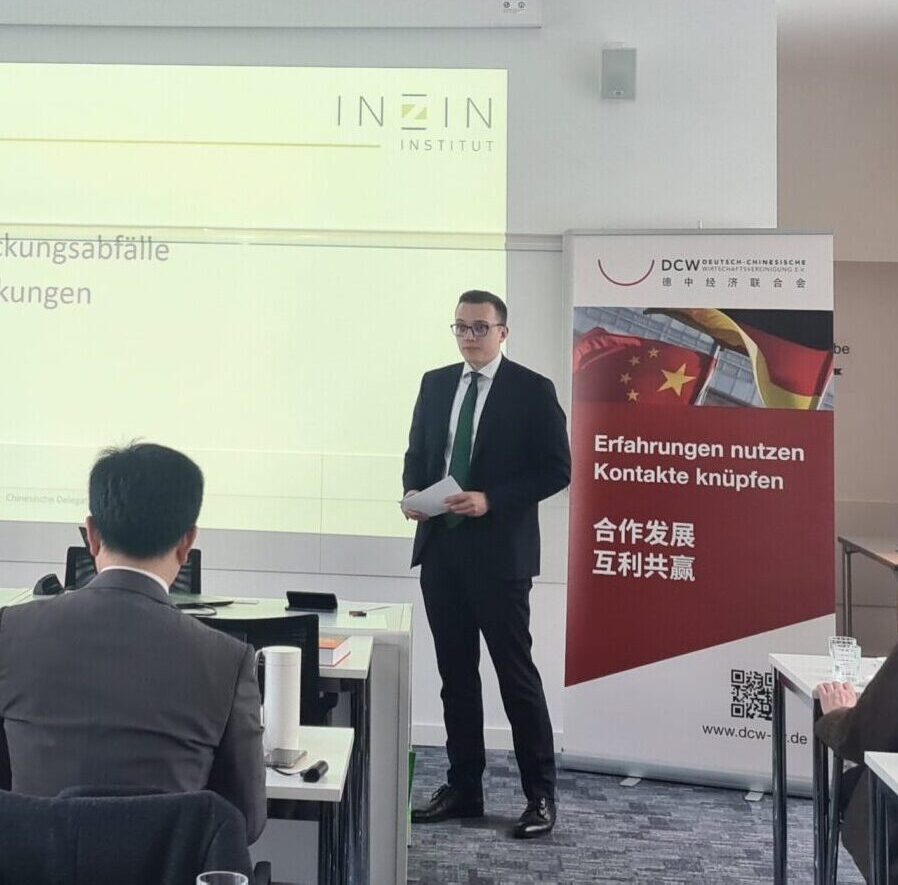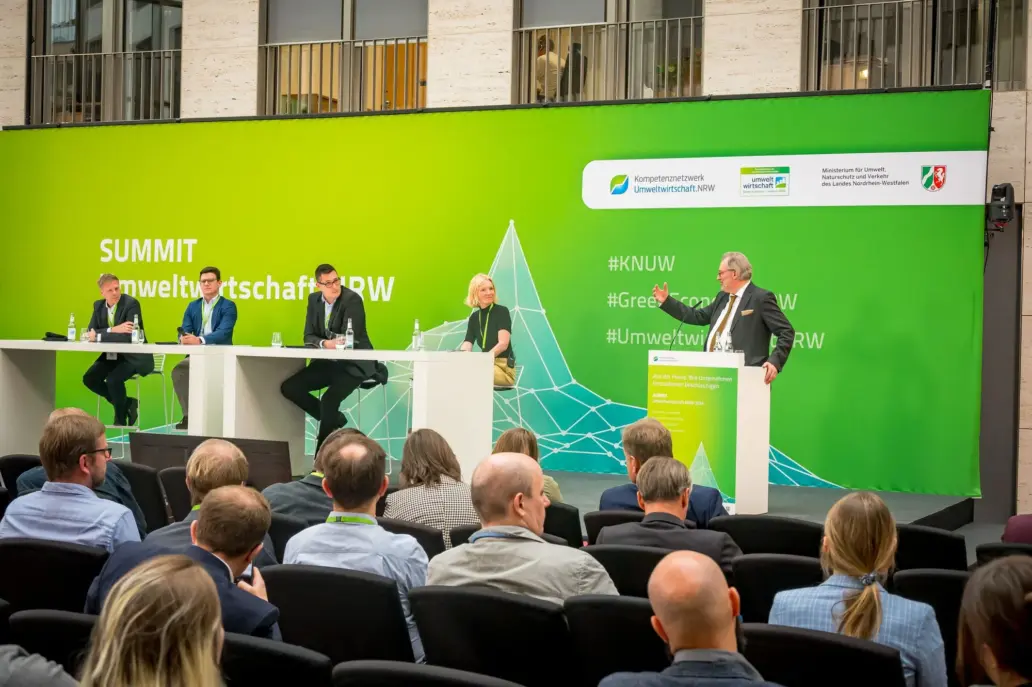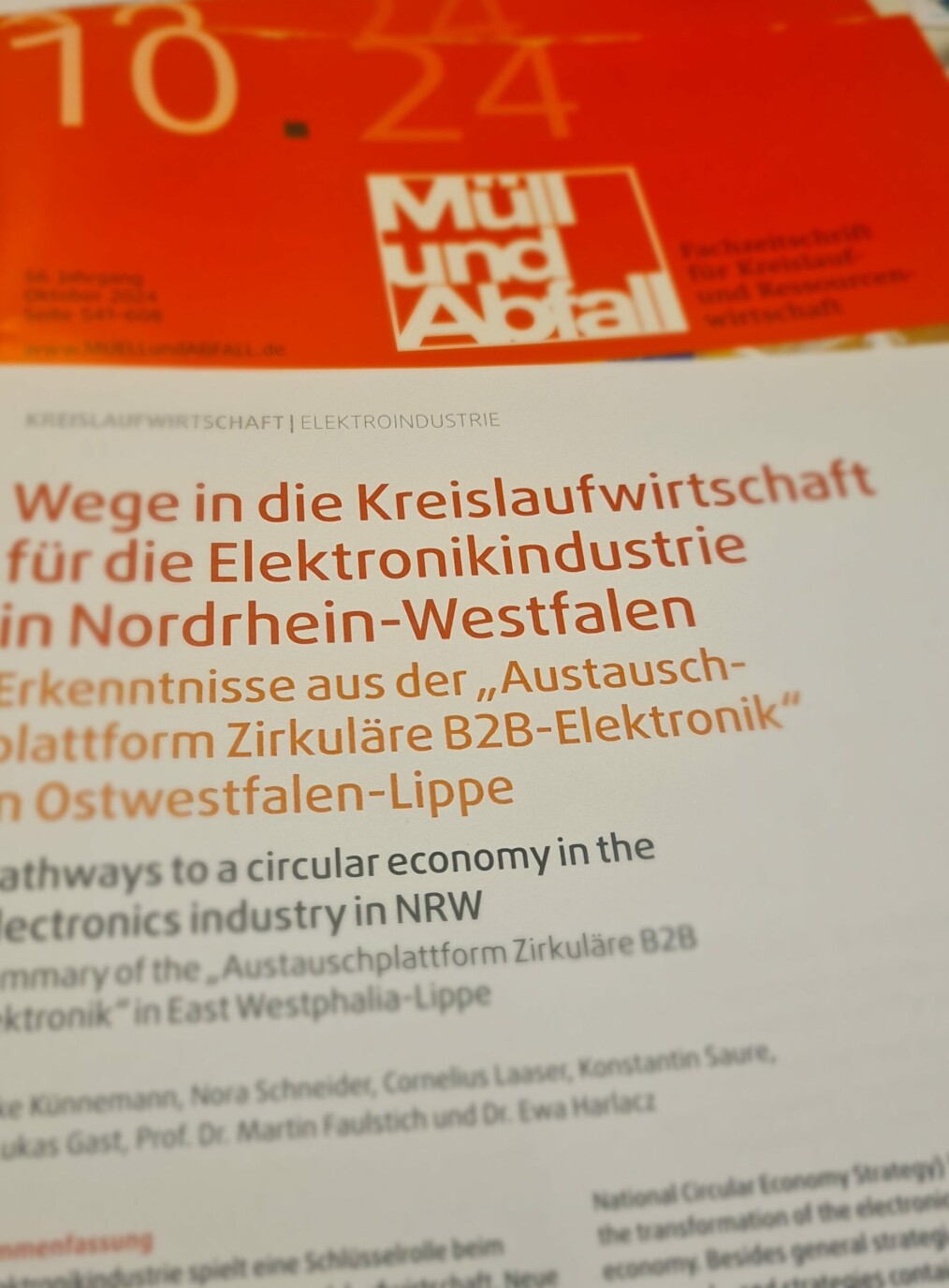Review of the Hannover Messe 2025
News 2024
Daniel Ohl as speaker on stage
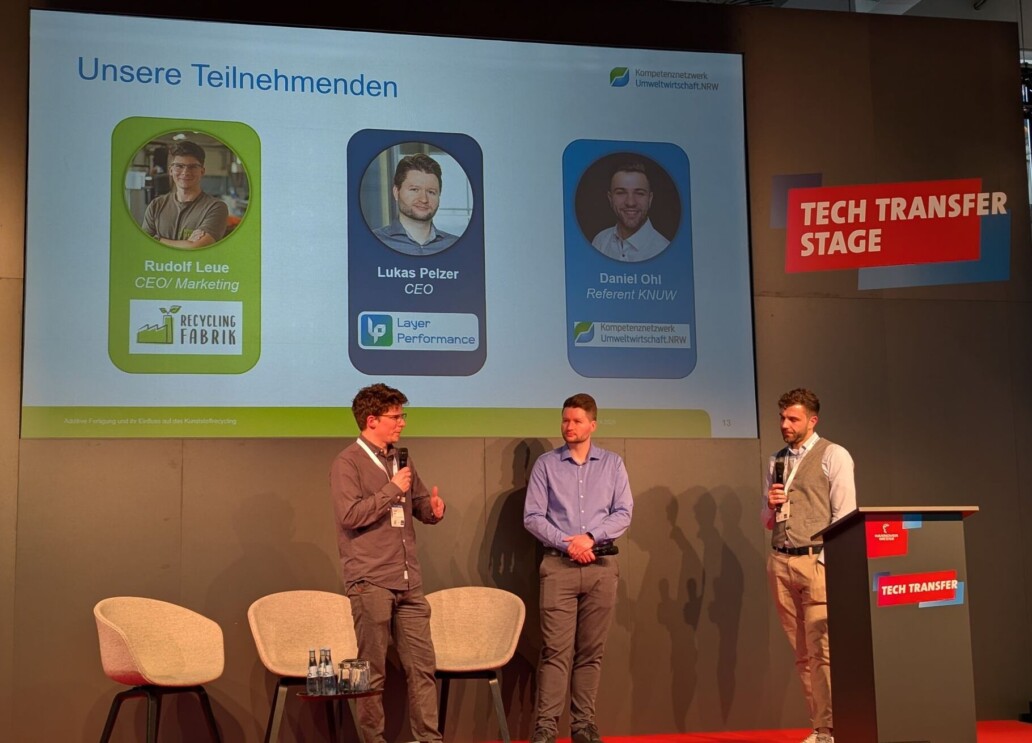
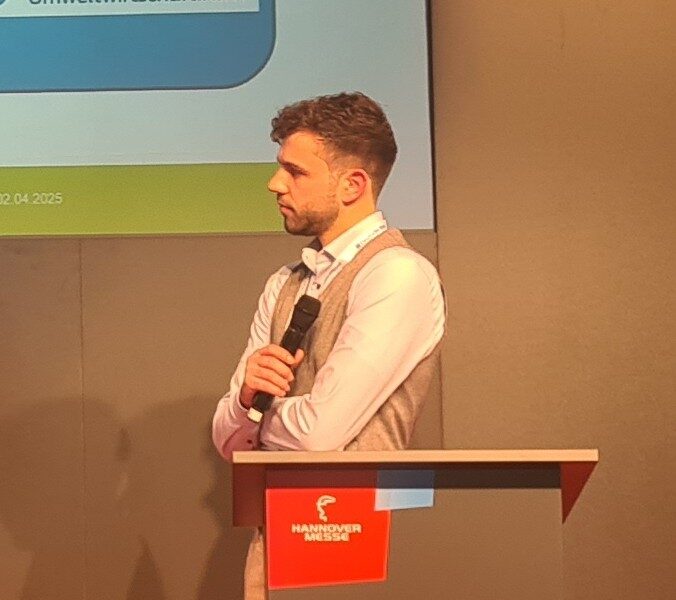
Daniel Ohl as speaker for sustainable plastics innovations
The Hannover Messe took place on 2 April 2025 with the theme ENERGIZING A SUSTAINABLE INDUSTRY.
Daniel Ohl moderated a panel as a speaker from the NRW Competence Network for the Environmental Economy (KNUW) and PhD scholarship holder of the INZIN Institute in the field of plastics recycling. The focus was on innovations in the plastics sector – improving recyclability through additive manufacturing technologies.
Hannover Messe 2025 was an informative and forward-looking event. The high level of interest and response shows that sustainable material solutions and the circular economy are key topics for the industry.
We congratulate our doctoral student Daniel Ohl on his successful trade fair appearance!
INZIN at the Circular Valley Convention (CVC) 2025
News 2024
INZIN at the Circular Valley Convention (CVC) 2025
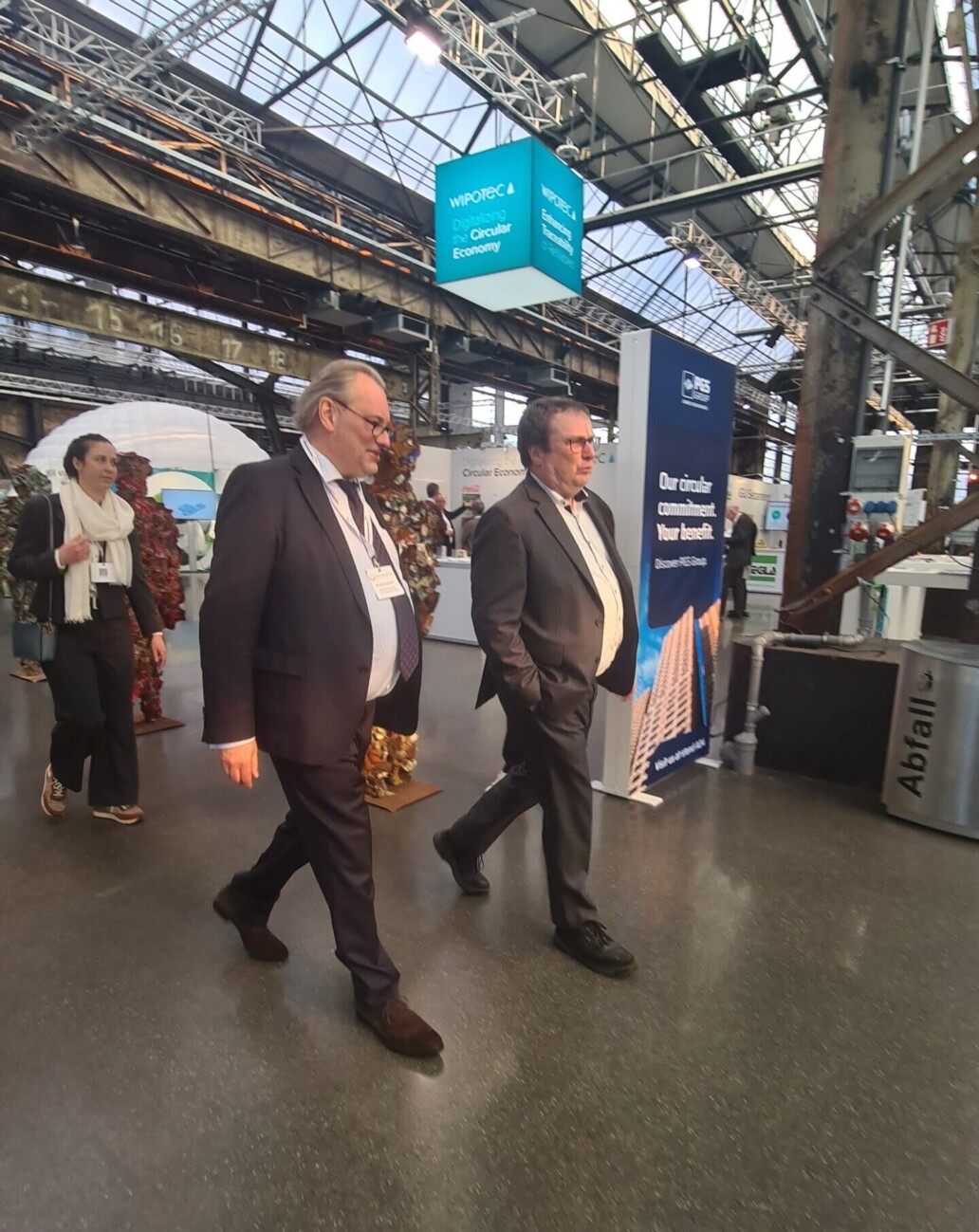
Working together for the progress of the circular economy
The Circular Valley Convention (CVC) 2025 took place from 12-13 March at the Böhler Areal. It offers a platform for various industries to jointly advance the transformation to a circular economy. Innovations were presented, presentations were given and important discussions were held to develop new ideas and advance existing ones.
Our INZIN Institute was also present at the Circular Valley Convention. Prof Dr Martin Faulstich and Dr Ewa Harlacz took part in this interesting event together with the Green Economy Network.NRW (KNUW). KNUW presented the innovative recycling solutions that are needed to secure the supply of critical raw materials. At the same time, KNUW enabled start-ups to take part in the Cirucular Valley Convention and present their innovations in the circular economy.
Further information on KNUW and the innovations of the individual start-ups can be found here:
https://www.knuw.nrw/en/trade-expos/detail/circular-valley-convention-2025.html
Our doctoral students present their research at the 14th DGAW Science Congress
News 2024
Our doctoral students are actively involved in the 14th DGAW Science Congress
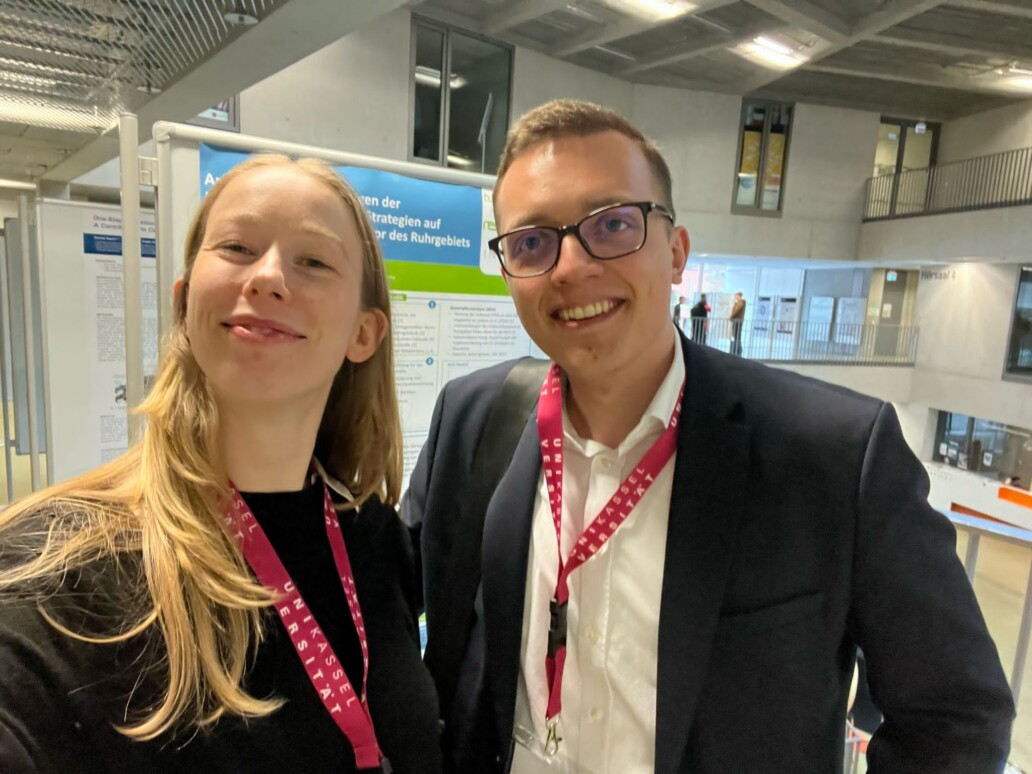
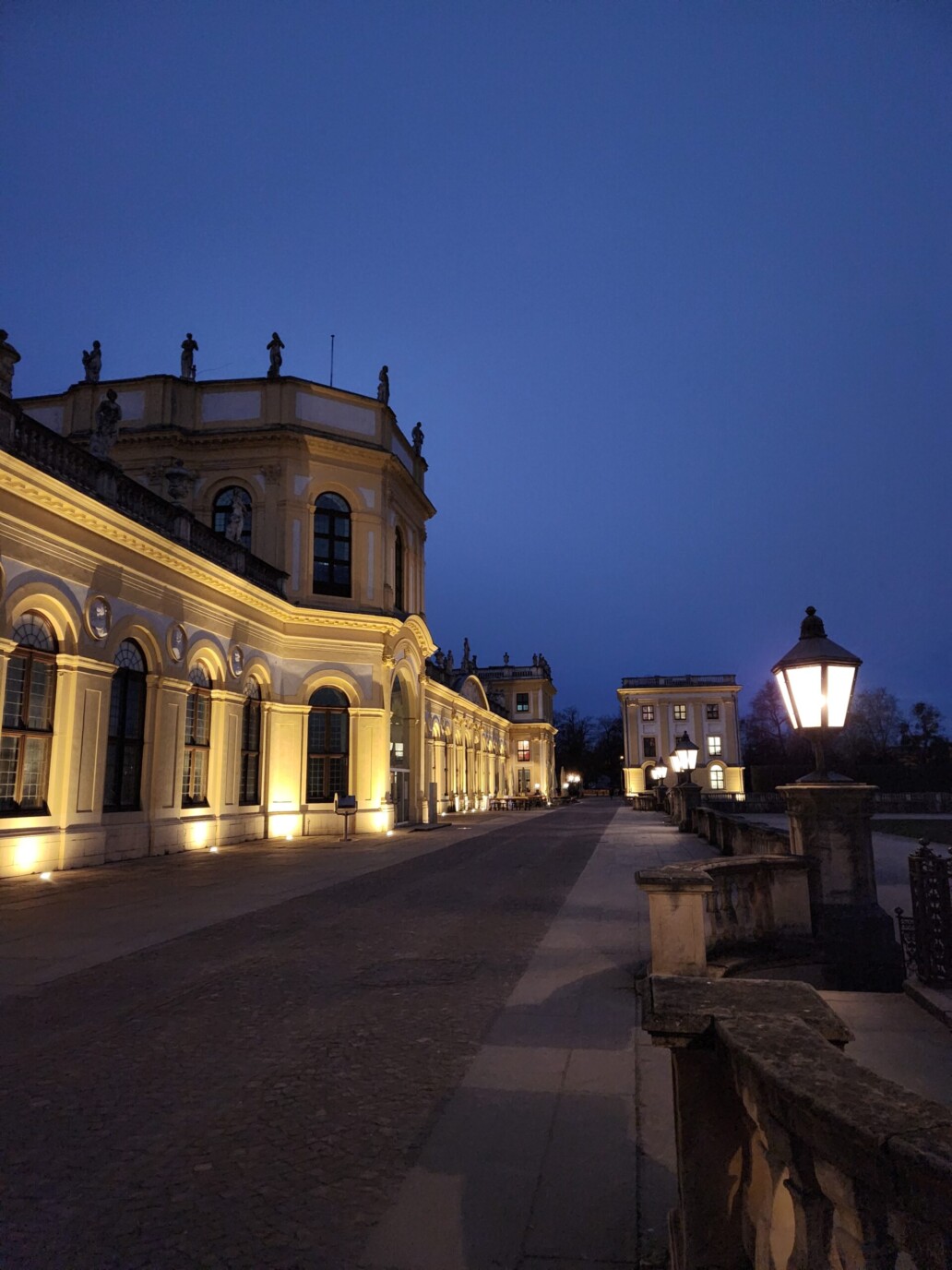
Pauline Jegen and Konstantin Saure are participating
From 13 – 14 March 2025, the 14th Scientific Congress of the German Society for Waste Management (DGAW) took place at the University of Kassel. The event offers a platform for young scientists to present their own topics in the field of waste and recycling management.
Our INZIN Institute was represented by two of our doctoral students. Both presented key aspects of their doctoral projects and made a valuable contribution to the 14th Science Congress in Kassel:
- Pauline Jegen with a poster presentation on “Analysing the impact of implementing R-strategies on material flows in the construction sector in the Ruhgebiet”.
- Konstantin Saure with a lecture on “Urban redistribution logistics for reusable packaging for pre-packaged food”
In addition to the specialist lectures and poster presentations, the “Science meets business” event took place on 12 March. This offered exciting workshops on skills for future managers as well as the opportunity for dialogue between scientists and managers.
Another highlight was the evening gathering at the elegant garden Hall of the Orangerie Kassel.
We are delighted with the successful participation and congratulate our doctoral students on their successful presentations!
Many thanks to the DGAW and all those involved for the excellent organisation of this inspiring congress!
Daniel Ohl moderates a panel
at the Hannover Messe
News 2024
Discussion panel at the Hannover Messe: Innovations in the plastics sector

Innovations in the plastics sector
3D printing more than just a gimmick?
3D printing can do more than produce USB sticks in the shape of hot dogs, mini-sneakers for dogs and aquarium slides for fish.
Rather, it can make an important contribution to plastic recycling!
That is why we are devoting the KNUW panel at the Hannover Messe to the questions of what influence additive manufacturing has on the recyclability of plastics and how the use of recyclates in 3D printing is organised.
Curious? Then come and see us!
📅 Date: 2 April 2024
🕠 Time: 4:25 – 4:45 PM
📍 Location: Tech Transfer Stage
We are very pleased to welcome Lukas Pelzer from Layer Performance as a participant. Layer Performance offers customised solutions with its innovative software to further expand the wide range of additive manufacturing applications!
The panel will be moderated by Daniel Ohl, advisor to the Green Economy Network NRW (KNUW) and doctoral scholarship holder at the INZIN Institute in the field of plastics recycling.
Let’s talk together about how we can create more sustainable solutions for industry through technological innovation!
Come along and join the discussion!
High-ranking delegation from Beijing meets INZIN doctoral students
News 2024
High-ranking delegation from Beijing meets INZIN doctoral students
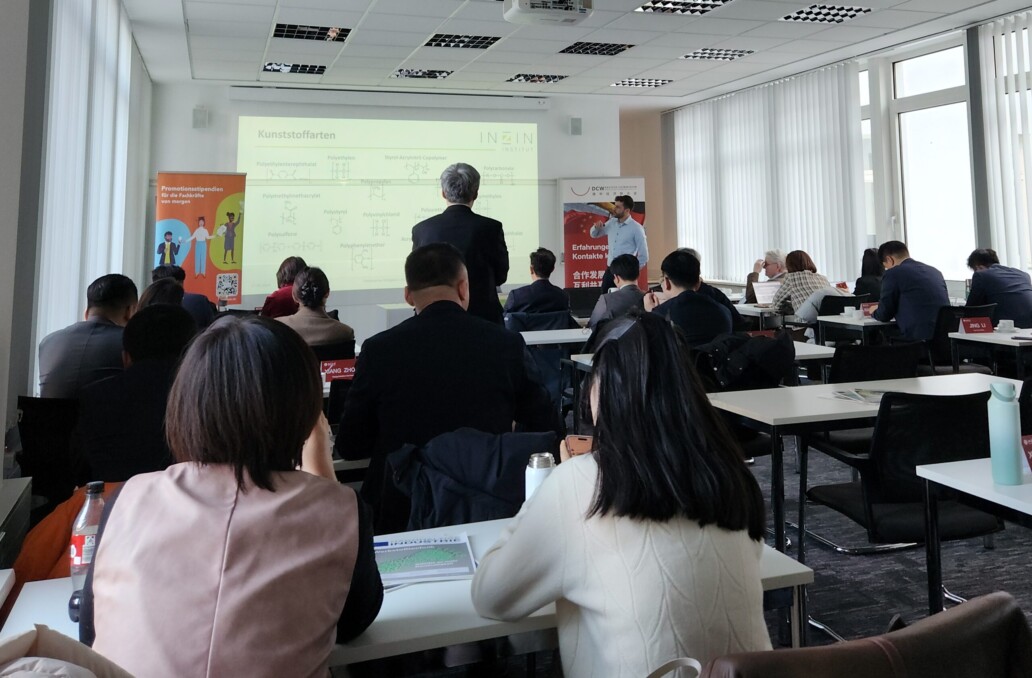
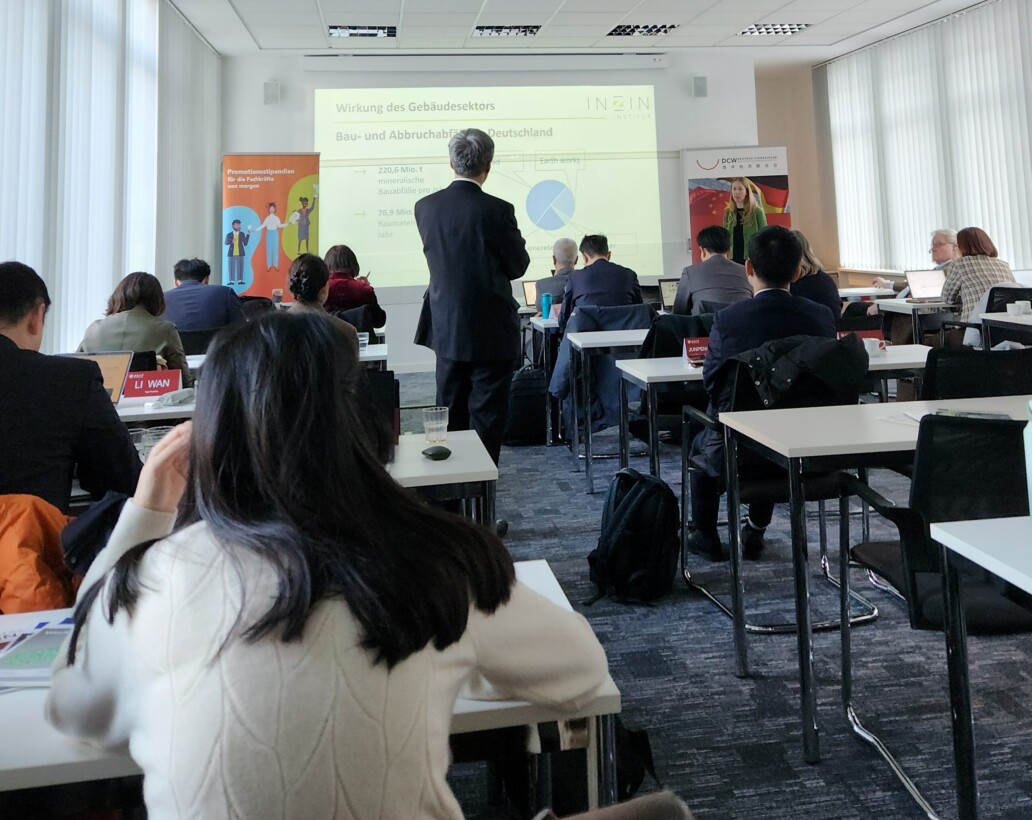
On 17 February 2025, a high-ranking Chinese delegation from Beijing met with the INZIN Institute for a professional exchange. The delegation’s stay and the event at the Düsseldorf IHK Forum were organised by the German-Chinese Business Association (DCW) e.V. and provided a valuable opportunity for international networking and knowledge transfer.
As part of the event, three doctoral students from the INZIN Institute gave specialist lectures and presented their doctoral projects. Pauline Jegen presented her doctoral project on the “Effects of implementing circular construction on material flows”. Konstantin Saure presented his research on “Urban redistribution logistics for reusable packaging for pre-packaged food”. Daniel Ohl provided insights into his work on “Recyclate utilisation rates for plastics”.
Dr. Ulrich Teich introduced the INZIN Institute and supported the German-Chinese dialogue.
Many thanks to the German-Chinese Business Association (DCW) and the IHK Forum Düsseldorf!
Green transformation: INZIN presentation at the German-Chinese Business Day (DCWT)
News 2024
INZIN at the German-Chinese Business Day (DCWT) 2024
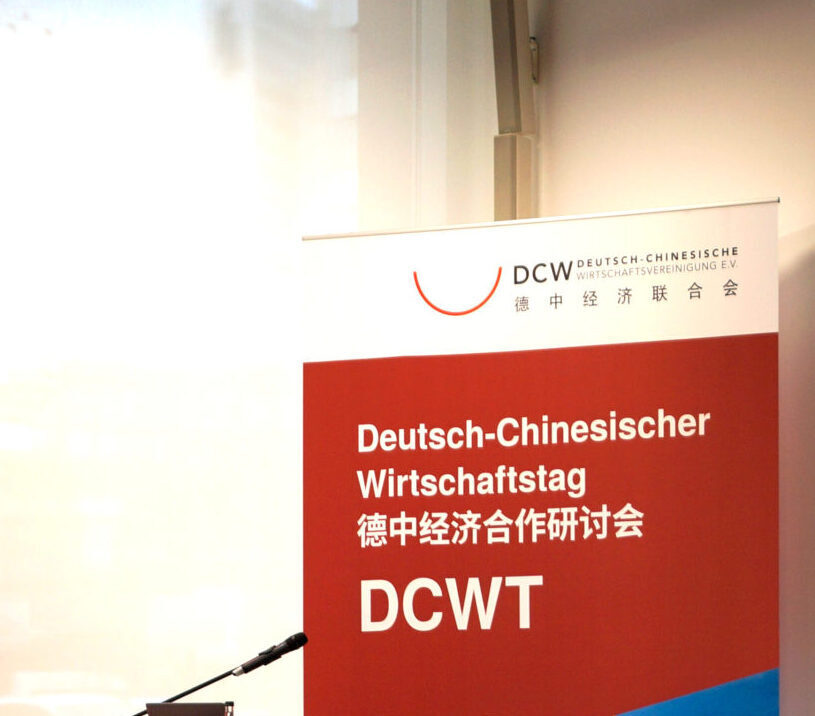
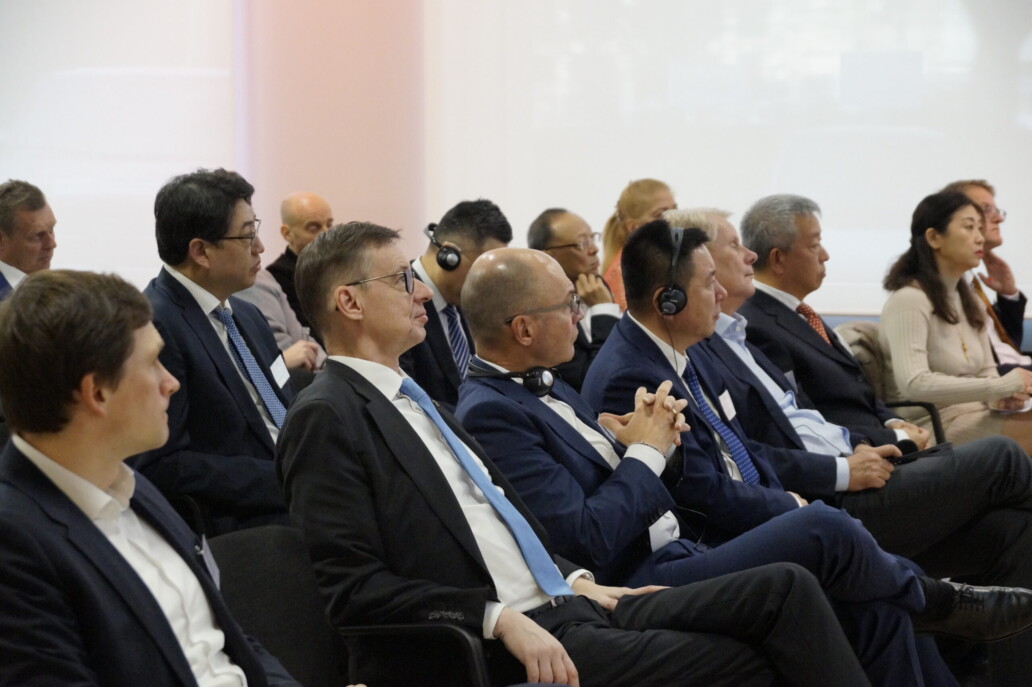
© DCW
On 3 December 2024, the INZIN Institute was represented with a presentation and its own exhibitor stand at the German-Chinese Business Day (DCWT) at the IHK Düsseldorf The event provided a valuable platform for dialogue between German and Chinese companies as well as specialists from business and science.
A particular highlight was the lively panel discussion in the afternoon, in which Dr. Ulrich Teich and Dr. Lukas Gast took part together with other experts. The discussion centred on the topic of “Sustainable management in business practice”. Dr. Teich shed light on key issues relating to sustainability reporting in companies and current developments in the field of green tech and environmental technologies in Germany. The discussion provided in-depth insights and practical impulses for companies dealing with the sustainable transformation.
The German-Chinese Business Day (DCWT) is the annual main event of the German-Chinese Business Association. The focus of this year’s DCWT – sustainability and green transformation – is highly relevant for both German and Chinese companies. The event provided an excellent opportunity for networking and promoted bilateral dialogue on innovative solutions for a sustainable future.
We would like to thank all participants for the valuable discussions and look forward to the next DCWT!
Discover the KNUW Green Economy Paper on critical raw materials!
News 2024
SUMMIT Umweltwirtschaft.NRW | 7 Nov.2024
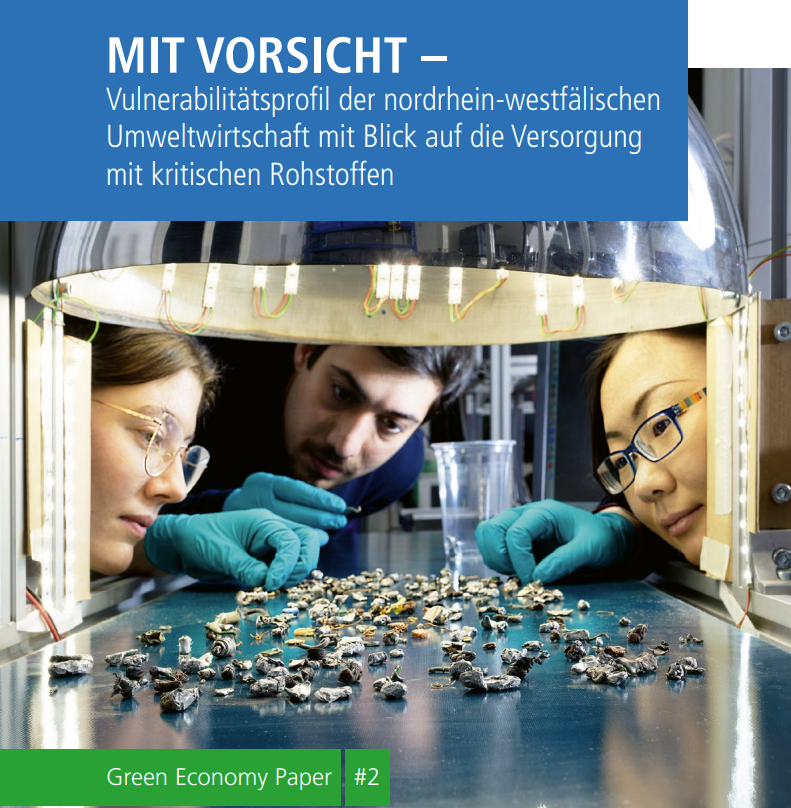
©KNUW
In a world that is increasingly focussing on sustainable practices, critical raw materials are central to the transition to a green economy. The current KNUW Green Economy Paper highlights the challenges and opportunities associated with the extraction and utilisation of these valuable resources.
In this comprehensive document you will find:
- Analyses of raw material deposits and markets: Find out which raw materials are considered critical and why they are essential for the energy transition.
- Sustainability strategies: Learn how companies and governments can take action to ensure a sustainable supply of raw materials.
- Future prospects: Gain insights into innovative approaches and technologies that promote efficiency and environmental friendliness in the raw materials industry.
Download the full paper and find out about the most important aspects of sustainable raw material utilisation. Visit KNUW Green Economy Paper and keep your finger on the pulse of the green economy!
Critical raw materials and vulnerability of the NRW economy
News 2024
SUMMIT Umweltwirtschaft.NRW | 7 Nov.2024
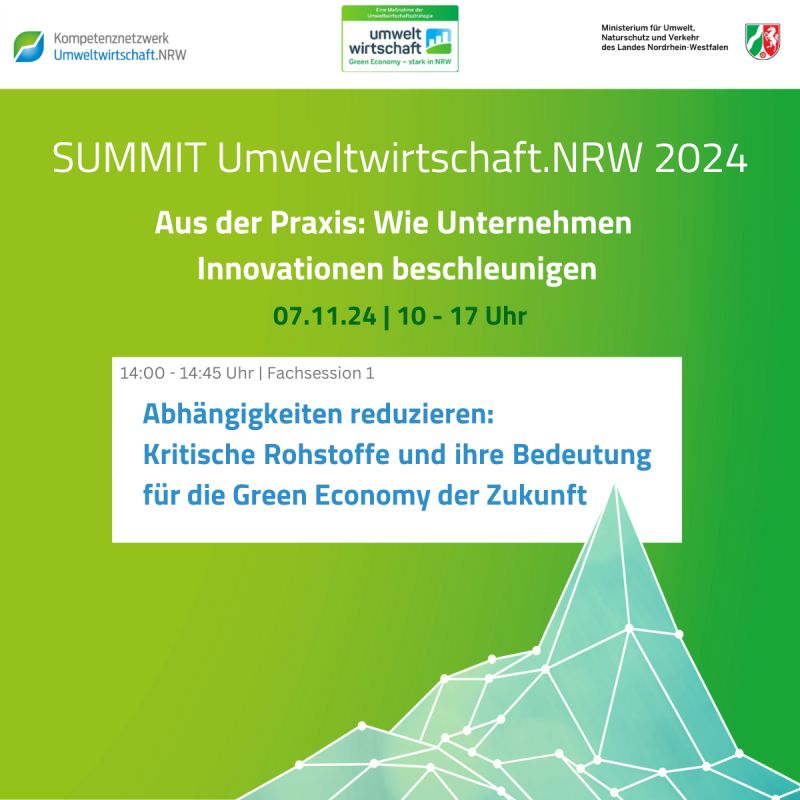
Importance of the criticality of specific raw materials for NRW companies
Reducing dependencies: Critical raw materials and their importance for the green economy of the future
The implementation of the Green Deal depends heavily on raw materials. But what resources are actually required for this, where do they come from, how stable are their supply chains and what recycling options already exist? What does this mean for stakeholders in NRW and how can recycling capacity be increased (to 25 percent) in order to make the availability of raw materials more resilient? We want to discuss this with…
- Entrepreneurs from the manufacturing industry
- Representatives of the recycling industry
- the Circular Economy Round Table
to the programme: SUMMIT Umweltwirtschaft.NRW
Pathways to a circular economy in the electronics industry in NRW
News 2024
Circular economy in the electronics industry
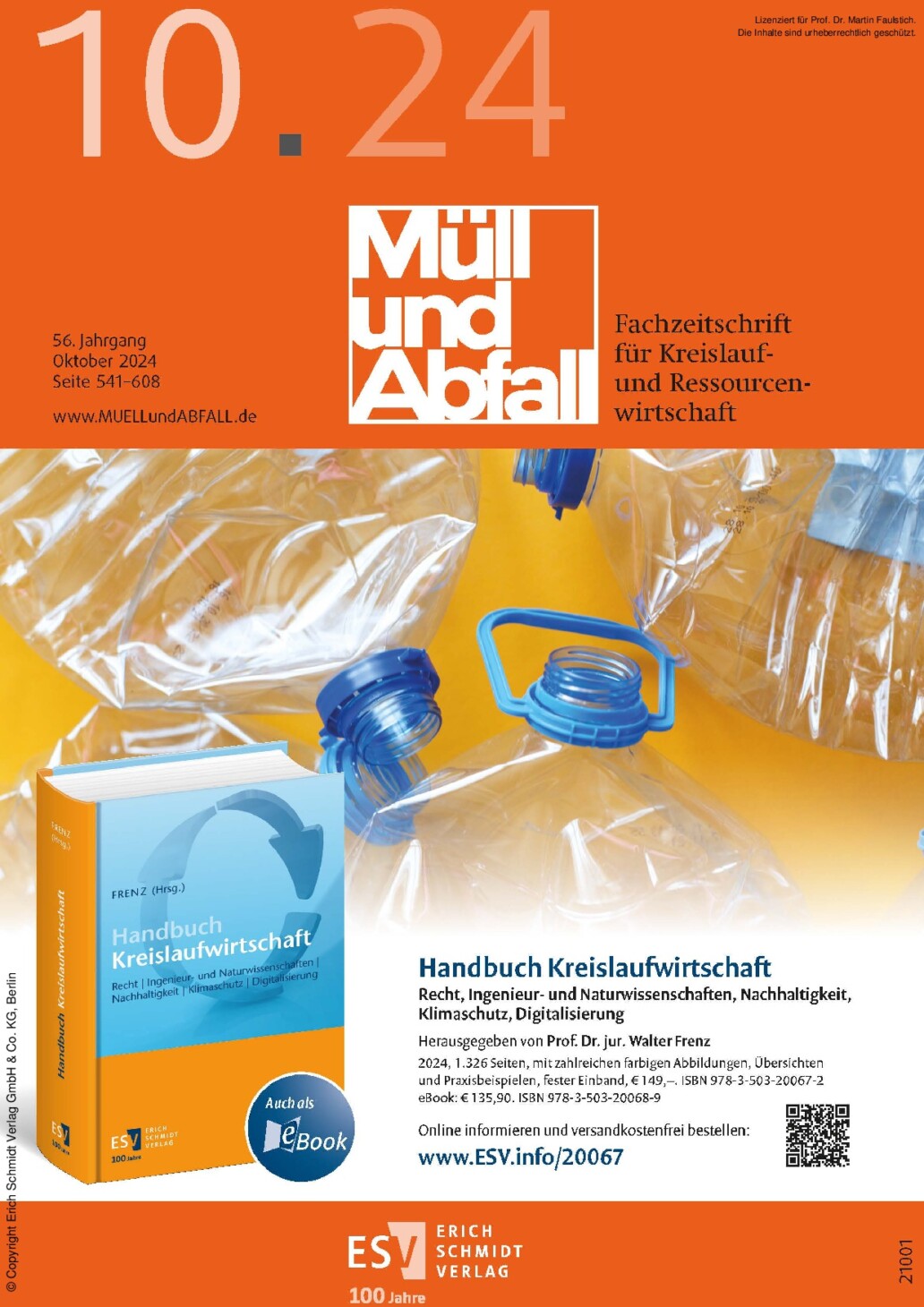
Circular B2B electronics exchange platform - Findings
The electronics industry plays a key role in the transition to a comprehensive circular economy. New regulatory frameworks and strategies at European level, such as the Critical Raw Materials Act, and at national level, such as the draft National Circular Economy Strategy, are influencing and supporting the transformation of the electronics sector towards a circular economy. In addition to general strategies and measures, there are also specific targets for reducing the environmental impact of production and use along the product value chain, for example through better product design and more efficient recycling.
In order to shape the transformation and establish material cycles, relevant stakeholder groups from business, science and politics in North Rhine-Westphalia are working together in the Circular B2B Electronics exchange platform.
This article summarises the stakeholder perspectives, obstacles and opportunities for the circular economy.
To the article: Pathways to a circular economy in the electronics industry in NRW
Environmental Economy Award of North Rhine-Westphalia 2024
News 2024
Environmental Economy Award.NRW 2024.NRW 2024 verliehen
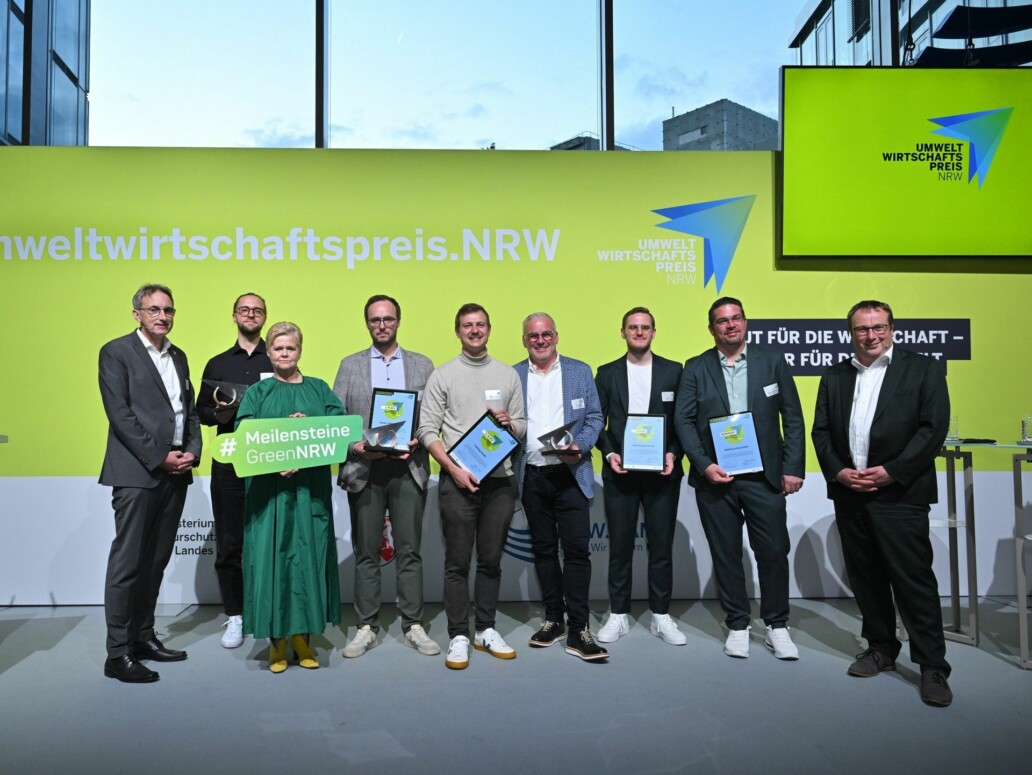

© Susanne Schmidt-Dominé
The winners have been announced!
On September 16, 2024, the Environmental Economy Award was presented for the third time. The award recognizes companies that combine environmental and climate protection with economic success in an impressive way. Companies in the green economy in North Rhine-Westphalia once again had the chance to win award money totaling EUR 60,000 in 2024. Here you can find out which companies impressed the jury with their innovative business models in 2024.
1st place and 30,000 euros in prize money went to ClayTec GmbH & Co. KG from Viersen.
ClayTec has been producing building materials such as mortar and drywall panels from clay for 40 years: a raw material that is available in large quantities in Germany and is a suitable substitute for less environmentally friendly materials such as gypsum and limestone.
Voltfang GmbH from Aachen was delighted to receive 2nd place and 20,000 euros in prize money.
The innovative Aachen-based company Voltfang has developed a battery storage system from second-life batteries that helps small and medium-sized companies and industry to reduce their ecological footprint and save costs.
HDB Recycling GmbH from Hünxe secured 3rd place in the Environmental Business Award.NRW 2024, which is endowed with 10,000 euros.
Where to put mixed mineral waste? HDB Recycling GmbH from Hünxe has found an innovative solution. With the wet processing plant for recycled aggregates in North Rhine Westphalia, it processes mineral waste into high-quality secondary construction materials for building construction and civil engineering.
The Environmental Business Award is aimed at innovative companies in the green economy that contribute to further expanding North Rhine-Westphalia’s pioneering role in the environmental economy
Further information on the Environmental Economy Award.NRW
Environmental Economy Award.NRW 2024
